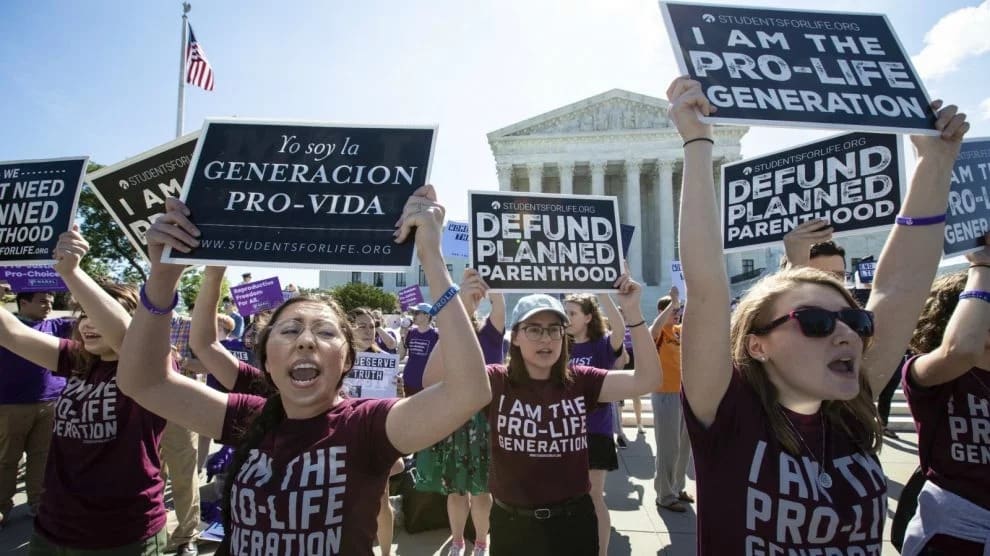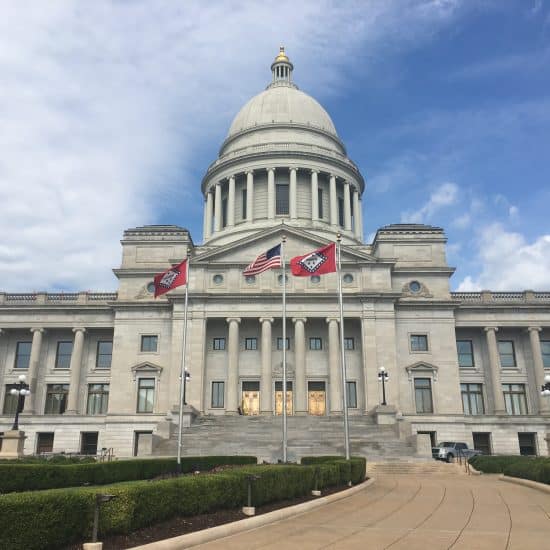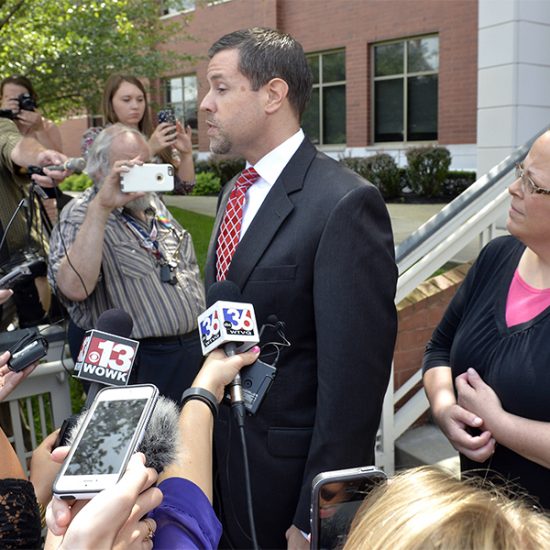WASHINGTON (USA Today) — The Supreme Court on Tuesday dealt a major blow to a California law requiring anti-abortion pregnancy centers to inform women about publicly funded abortion and contraception services.
 Pro-life and anti-abortion advocates demonstrate in front of the Supreme Court early Monday, June 25, 2018. The justices are expected to hand down decisions today as the court’s term comes to a close. (AP Photo/J. Scott Applewhite)The 5-4 ruling by Justice Clarence Thomas, with the court’s conservatives in the majority, was aimed at a liberal state government seeking to notify pregnant women of their rights to an abortion. But it could have unintended consequences. Laws in more conservative states requiring women seeking abortions to view ultrasounds or learn about the growth of their fetus now could be at risk.
Pro-life and anti-abortion advocates demonstrate in front of the Supreme Court early Monday, June 25, 2018. The justices are expected to hand down decisions today as the court’s term comes to a close. (AP Photo/J. Scott Applewhite)The 5-4 ruling by Justice Clarence Thomas, with the court’s conservatives in the majority, was aimed at a liberal state government seeking to notify pregnant women of their rights to an abortion. But it could have unintended consequences. Laws in more conservative states requiring women seeking abortions to view ultrasounds or learn about the growth of their fetus now could be at risk.
California’s law forces licensed pregnancy centers to post notices about free or low-cost state programs that include abortion services. It also requires unlicensed centers to inform clients that they are not medical facilities. Challengers called it a form of compelled speech.
The justices were divided over the requirements during oral argument in March. The court’s conservatives, including California’s Anthony Kennedy, complained that the law targets only clinics that counsel women to complete their pregnancies. But liberal justices compared it to laws, upheld by the high court, that require doctors performing abortions to advise women about alternatives.
The National Institute of Family and Life Advocates, which operates or is associated with about 130 California pregnancy centers, argued such “informed consent” laws are warranted on the verge of a medical procedure, but the same is not true for centers counseling women to continue pregnancy.
The state contends that many pregnancy centers deceive and misinform clients by posing as medical clinics and running ads intended to attract women in search of traditional abortion and contraception services. It says more than half of its 700,000 pregnancies each year are unintended, and women need to know their options.
While the Supreme Court made abortion legal nationwide in 1973 and has struck down state restrictions that block access for women, it has defended free speech rights in a number of recent cases:
Cities such as New York, San Francisco and Baltimore were first to enact laws imposing requirements on pregnancy centers. The facilities fought back in court — successfully in most cases — by arguing that the cities were discriminating based on their viewpoints.
A coalition of municipal groups argued that a ruling against California could put other required postings on shaky legal ground, such as those providing first aid instructions or requiring workers to wash their hands.






